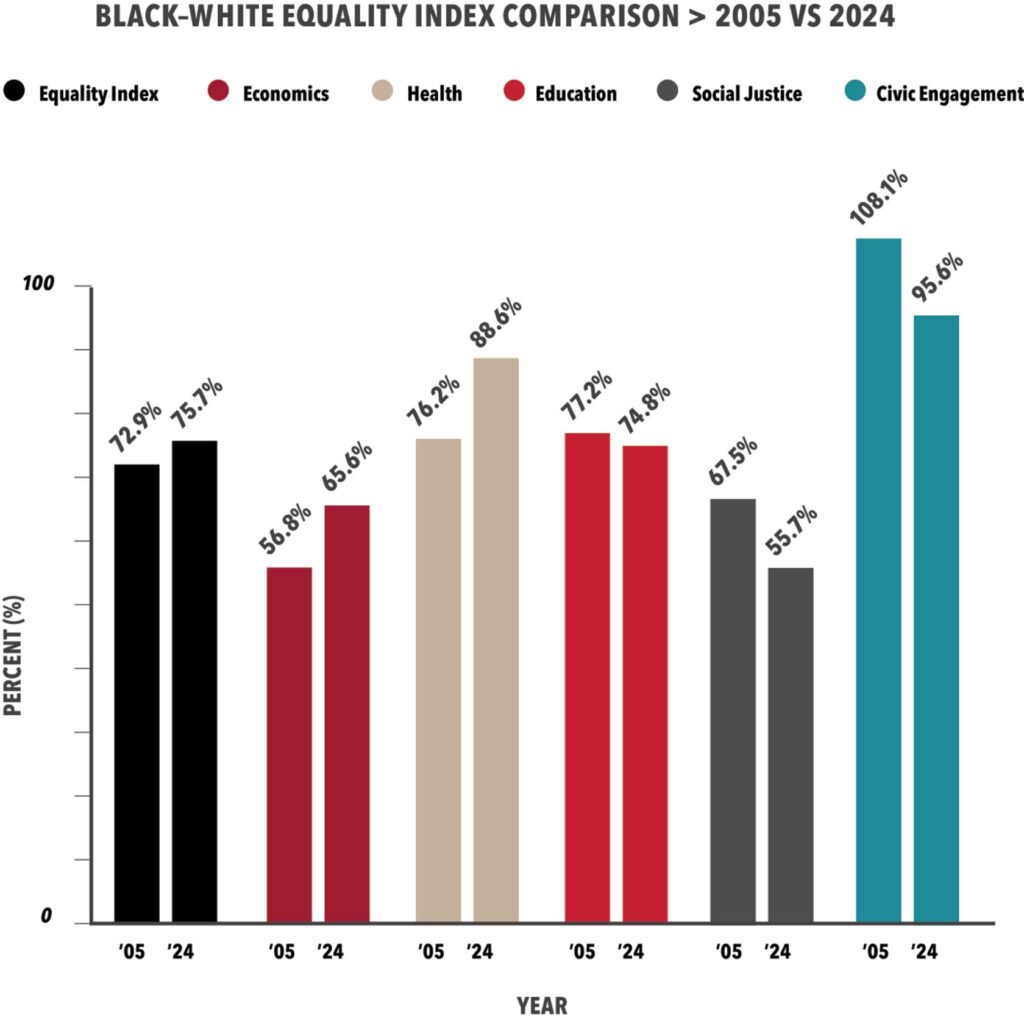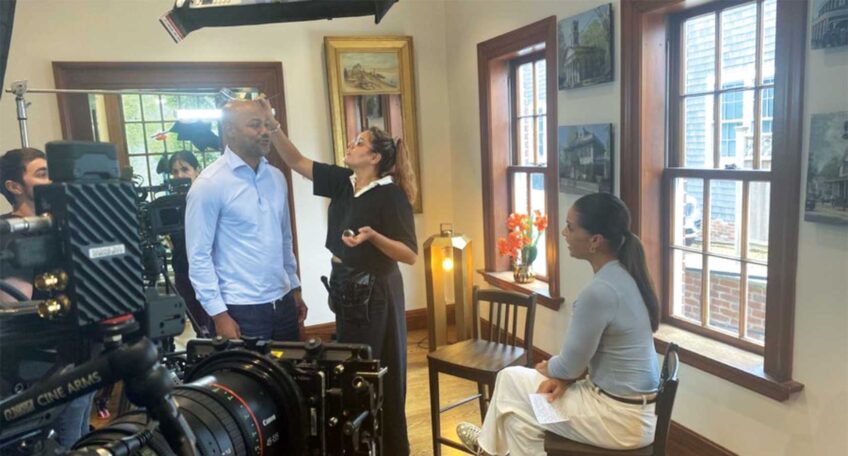‘Not on our watch’ – National Urban League releases State of Black America Report

Banner Business sponsored by The Boston Foundation
Just a few blocks from the U.S. Capitol, hundreds of delegates from around the country gathered last week as part of the National Urban League’s Empowerment Summit, which included the highly anticipated State of Black America Report, “The Civil Rights Act of 1964: 60 Years Later.”
Featured prominently in the report is the annual Equality Index, a tool developed by the National Urban League in 2005 that shows how Black Americans are doing in comparison to white Americans in economic status, health, education, social justice and civic engagement.
The Equality Index for Black Americans this year is 75.7% (out of 100), which is an improvement of only 2.7 percent over the last 20 years.
“At this rate, we won’t reach parity for 180 years,” NUL President Marc Morial told those gathered for the opening plenary.
Since 2005, the Equality Index has attempted to measure racial inequality across the five categories by looking at nationally representative statistics to calculate sub-indexes within each category. For instance, the economics category includes home ownership rates as a sub-index. In 2023, the Black homeownership rate was 45.5%, compared to 74.5% for whites. Maternal mortality rate is another sub-index, included in the health category. The latest data revealed that 70 Black women die per every 100,000 child births compared to 26.6 per 100,000 for white women.
Not all the sub-indexes are as drastic, however. Undergraduate and graduate college enrollment of Black people is near parity with whites, at 27.5% and 27.8% respectively.
Although the overall index has changed little in the last 20 years, a closer look reveals that declines in one area offset improvements in other areas. For example, improvements overall in the economic and health categories are offset by declines in the education and civic engagement categories. The marginal overall improvement highlights the need for comprehensive solutions that include proactive policy solutions that will address deeply rooted racial inequality.
The NUL has used the State of Black America and its Equality Index to track progress toward eliminating racial inequality over the last 20 years. This year’s report framed that progress through the lens of the Civil Rights Act of 1964, enacted 60 years ago to end legal discrimination on the basis of race, color, religion, sex and national origin. As the report points out, “Martin Luther King Jr. called the Civil Rights Act of 1964 a ‘second emancipation.’ The first emancipation freed us from slavery. The second, from legal segregation. Today we must strive for a third emancipation, uprooting the deep racial divisions that remain embedded in our institutions so we can live according to the ideals the Civil Rights Act represents.”
Before running through a litany of the recent assaults on some of the gains made after the Civil Rights Act — through efforts to suppress the vote, books bans, and efforts to undermine diversity, equity and inclusion initiatives — Morial proclaimed, “Not on our watch will we allow the progress and the gains … to be eroded by a pernicious, vicious, hateful effort that has been designed to erase the last 70 years in American history.”
Urban Leaguers then heard from a series of panelists and presenters, including Kristen Clarke, the U.S. Justice Department’s assistant attorney general for civil rights; Damon Hewitt, executive director of the Lawyers’ Committee for Civil Rights; Shavon Arline-Bradley, president and CEO of the National Council of Negro Women; and Rep. Steven Horsford, chair of the Congressional Black Caucus , who provided insight on a range of policy and small-business issues ranging from equity in AI and the Community Revitalization Fund to investing in Black economic mobility and ensuring equitable contract opportunities.
The next day, members from the various Urban League affiliates visited Capitol Hill to meet with lawmakers and advocate for National Urban League policy priorities like raising the federal minimum wage to $17 by 2028, with adjustments for inflation, through the Raise the Wage Act (H.R. 4889/S. 2488) or making the Earned Income Tax Credit and Child Tax Credit permanent. These, along with several other policies aimed at increasing efforts to address systemic racism in hiring and promotion practices and promoting greater investment in education and equitable workforce development programs, were shared with members of the House of Representatives and the Senate.
The National Urban League’s State of Black America Report continues to highlight efforts that will be necessary to increase the Equality Index for Black Americans to 100%.







